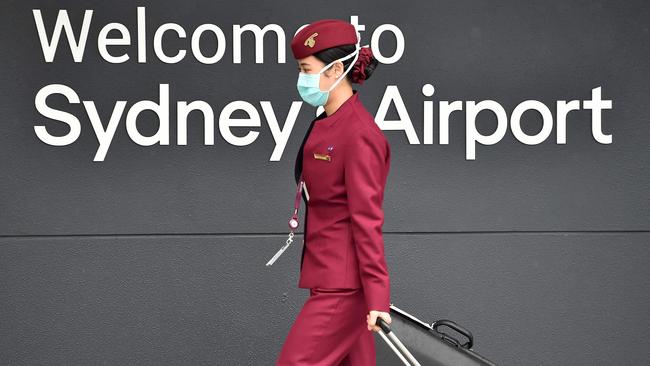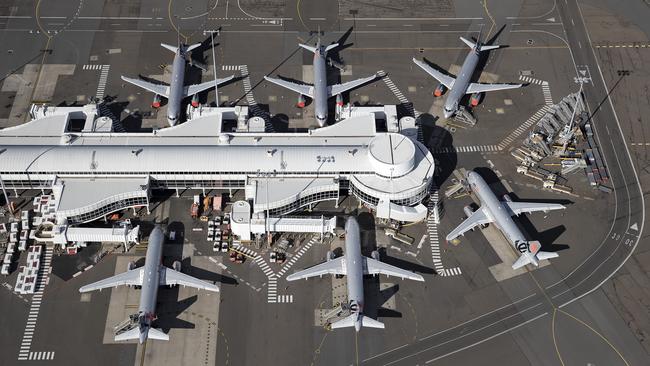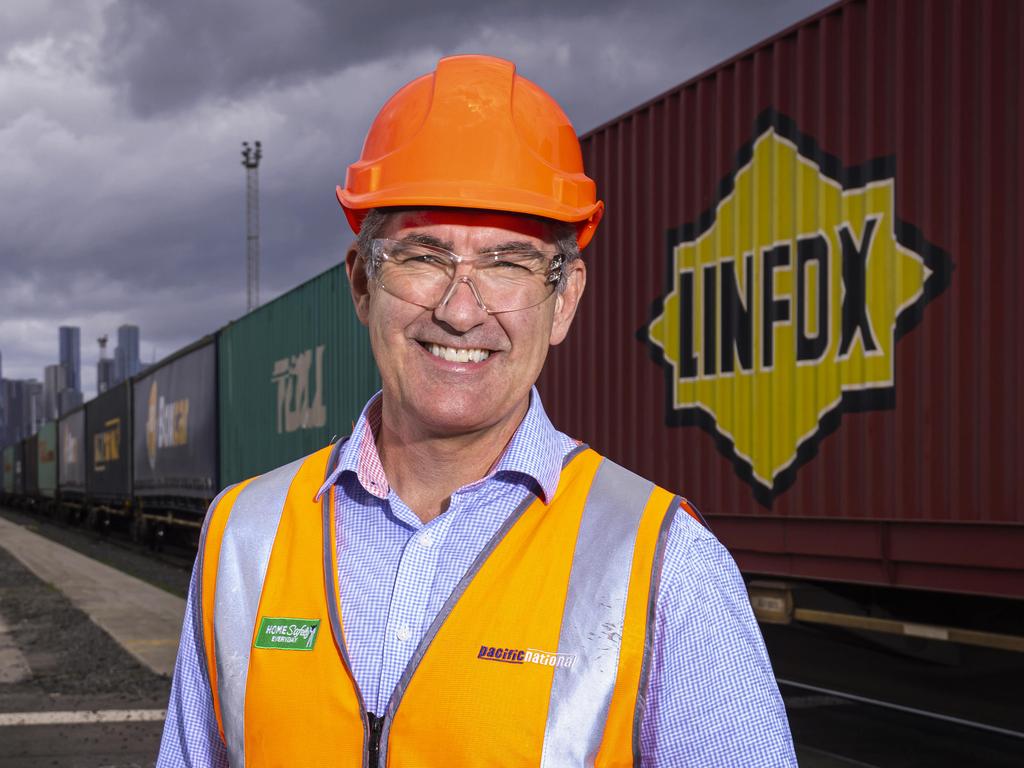Qantas avoiding Turkish Airlines flight path
Qantas appears keen to avoid another Qatar Airways controversy, taking the decision not to oppose Turkish Airlines’ bid to fly here.

Business
Don't miss out on the headlines from Business. Followed categories will be added to My News.
Qantas appears keen to avoid another Qatar Airways controversy with the airline taking the decision not to oppose an application by Turkish Airlines to start flying into Australia.
The European carrier remained hopeful of launching flights into Melbourne and Sydney within the next 12-months flying via Singapore, on Boeing 787-9s.
Transport Minister Catherine King this month confirmed she had received an application from Turkish Airlines, which was in the first instance being handled by the Civil Aviation Safety Authority.
As a member of the Star Alliance, Turkish Airlines would be seen as a competitor to Qantas which was part of the Oneworld airline group. Airline sources confirmed Qantas had taken the decision not to object to Turkish Airlines after the furore over the carrier’s opposition to Qatar Airways getting more flights.
The controversy is now the subject of a Senate Committee inquiry, which held its first public hearing on Tuesday.
Former Qantas economist Tony Webber was among those to give evidence, telling the committee the airline was “one of the most aggressive competitors” in the industry. “They’re exceptionally aggressive. If a new carrier encroaches on a route or market share it will aggressively respond,” said Dr Webber.
“It will add capacity to routes, it will pursue the corporate market. It has less opportunity internationally but it flexes its muscle domestically.”
He estimated the extra Qatar flights would have reduced international airfares by between seven and 10 per cent, while Flight Centre managing director Graham Turner suggested prices would have fallen up to 15 per cent.
Mr Turner told the committee Qantas was “very good at lobbying governments” but he believed there was more to the decision to knock back Qatar than “protecting Qantas”.
“I think if the government does anything for the travel industry, we would like to know what the reason is, and there’s got to be a dominant reason,” said Mr Turner.
“It’s pretty obvious we believe it’s in the national interest to approve those additional 28 flights a week.”

The committee also heard from the firm representing five women suing Qatar Airways after they were forced at gunpoint from their flight at Hamad International Airport and sexually assaulted.
Marque Lawyers’ Mark Bradley said at the time the women were not told a newborn baby had been found in a bin inside the airport.
As a result of that experience, his clients maintained the view Doha was an unsafe place for travellers and would prefer Qatar Airways was not allowed to fly into Australia at all.
“What happened to our clients is not the sole point of the inquiry but it’s an important thing,” said Mr Bradley.
“What happened to them was extraordinary and the airline has not answered for it.”
As well as the Qatar Airways quandary, the committee tackled the issue of Sydney Airport slots amid claims Qantas and Virgin Australia were retaining more slots than needed to keep competitors out.
High cancellation rates by the airlines on routes such as Sydney-Melbourne and Sydney-Canberra were highlighted as evidence of slot hoarding.
Sydney Airport CEO Geoff Culbert said there were as many as 40 slots a day going to waste, that could be accommodating more international or domestic airlines.
“We assess that a new A380 service from China would generate around $500m of economic value for the country, and smaller aircraft like A350s $250m of value,” Mr Culbert said.
“We’ve always maintained this (slot abuse) is a productivity drain on the country.”
In revealing testimony, the head of Airport Coordination Australia Petra Popovac said a compliance committee responsible for ensuring the proper use of slots had not met since 2015.
She said problems arose when it became apparent the committee or department of infrastructure and transport, had no legal power to issue fines for slot abuse.
“Jetstar was consistently slot abusing at the time, and that was made known to the committee,” Ms Popovac said.
“I put a proposal up to the department (of Infrastructure and Transport) and their legal team looked at it and found they could not actually fine Jetstar.”
The department then indicated it would “take a break to try to better organise the committee”, Ms Popovac revealed.
Despite the matter being regularly raised with the department, Ms Popovac said there had been no action around penalties for slot abuse.
A second public hearing will be held in Perth on Friday, with Qantas chair Richard Goyder expected to appear.
More Coverage
Originally published as Qantas avoiding Turkish Airlines flight path





